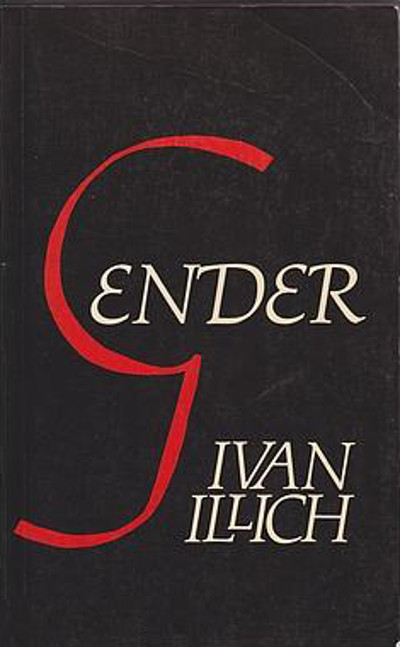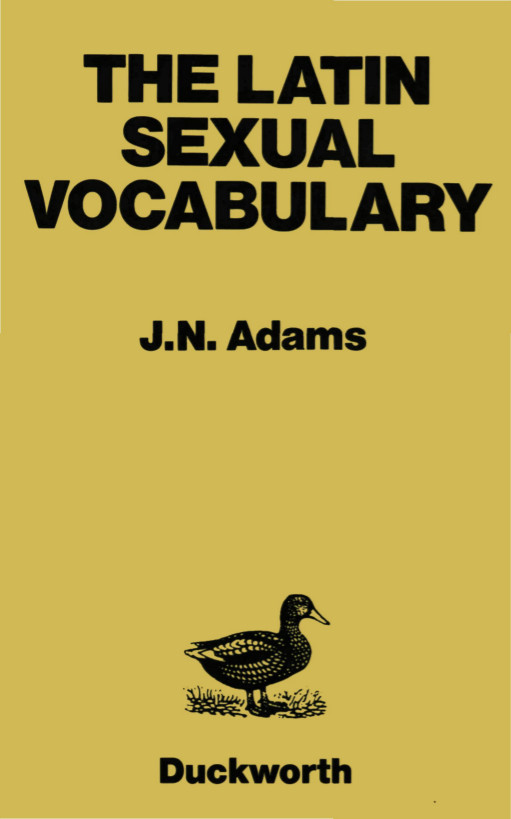Ivan Illich: Gender (1982)
Filed under book | Tags: · commons, economics, economy, gender, labour, marxism, medicine, men, production, rent, sex, sexuality, women, work

“The break with the past, which has been described by others as the transition to a capitalist mode of production, I describe here as the transition from the aegis of gender to the regime of sex.” Ivan Illich insists that we survey attitudes to male and female in both industrial society and its antecedents in order to recover a lost ‘art of living’. He argues that only a truly radical scrutiny of scarcity, with special attention in this study to the sexes and society, past and present, can prevent an intensification of this grim predicament.
Publisher Marion Boyars, London, 1982
ISBN 9780714520902
192 pages
Reviews: Arlie Russell Hochschild (New York Times, 1983), Ninna Nyberg-Sørensen (Acta Sociologica, 1987).
EPUB (updated on 2019-10-1)
PDF (30 MB, added on 2019-10-1)
J.N. Adams: The Latin Sexual Vocabulary (1982)
Filed under book | Tags: · body, history of literature, language, latin, linguistics, literature, philology, sex, sexuality

Like other languages, Latin had a group of words which speakers regarded as basic obscenities, as well as a rich stock of sexual euphemisms and metaphors. At the lower end of the social and stylistic scale evidence for Latin sexual terminology comes from numerous graffiti. On the other hand certain literary genres had a marked sexual content.
The Latin sexual vocabulary has never been systematically investigated, despite its linguistic and literary interest. This book collects for the first time the evidence provided by both non-literary and literary sources from the early Republic down to about the fourth century A.D.
Separate chapters are given to each of the sexual parts of the body, and to the terminology used to describe sexual acts. General topics treated include lexical differences between various literary genres, the influence of Greek on Latin, diachronic changes within the vocabulary, and the weakening of sexual words into general terms of abuse.
This is a fundamental book in every sense.
Publisher Duckworth, London, 1982
ISBN 071561648X
272 pages
via Gabriela García Palapa
Review (Peter Parsons, London Review of Books, 1983)
Review (D.R. Shackleton Bailey, Classical Philology, 1985)
PDF (72 MB)
Comment (0)Craig Dworkin: No Medium (2013)
Filed under book | Tags: · architecture, art, art theory, attention, body, book, conceptual art, dada, film, fluxus, literature, media, music, painting, paper, phonograph, sculpture, sex, silence, temporality, time, translation, typography
“In No Medium, Craig Dworkin looks at works that are blank, erased, clear, or silent, writing critically and substantively about works for which there would seem to be not only nothing to see but nothing to say. Examined closely, these ostensibly contentless works of art, literature, and music point to a new understanding of media and the limits of the artistic object.
Dworkin considers works predicated on blank sheets of paper, from a fictional collection of poems in Jean Cocteau’s Orphée to the actual publication of a ream of typing paper as a book of poetry; he compares Robert Rauschenberg’s Erased De Kooning Drawing to the artist Nick Thurston’s erased copy of Maurice Blanchot’s The Space of Literature (in which only Thurston’s marginalia were visible); and he scrutinizes the sexual politics of photographic representation and the implications of obscured or obliterated subjects of photographs. Reexamining the famous case of John Cage’s 4’33”, Dworkin links Cage’s composition to Rauschenberg’s White Paintings, Ken Friedman’s Zen for Record (and Nam June Paik’s Zen for Film), and other works, offering also a “guide to further listening” that surveys more than 100 scores and recordings of “silent” music.
Dworkin argues that we should understand media not as blank, base things but as social events, and that there is no medium, understood in isolation, but only and always a plurality of media: interpretive activities taking place in socially inscribed space.”
Publisher MIT Press, 2013
ISBN 0262018705, 9780262018708
219 pages
Interview with the author (Critical Margins)
Author’s lecture at Penn Poetry & Poetics (video, 19 min)
Reviews: Johanna Drucker (Los Angeles Review of Books), Michael Leong (Hyperallergic).
Commentary: Richard Marshall (3:AM Magazine).


